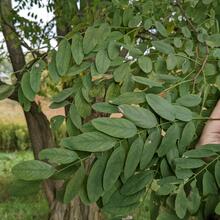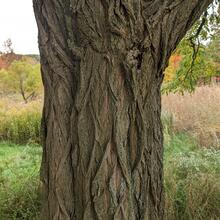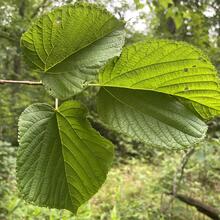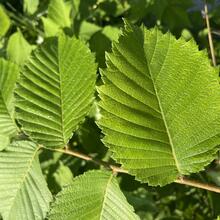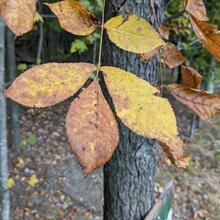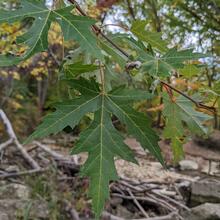Robinia pseudoacacia
Fabaceae
Produces small thorns on stems. Useful for erosion control and nitrogen fixation on nutrient poor sites. Produces root sprouts. Seed pods may be messy to maintain.
Summary
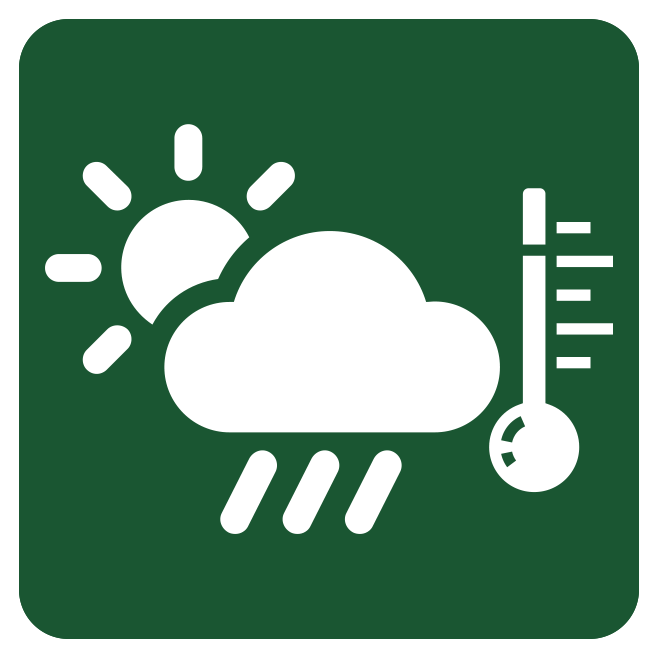 Climate Tolerance
Climate Tolerance
Very Good
Wildlife Benefits
Nectar/pollen source for bees, butterflies, hummingbirds; seeds food source for gamebirds; moth/butterfly host; cavity nesting site
Pollination Type
Pollinator
Plant Hardiness Zones
3 to 8
# Butterfly/Moths that use as host
61
Bloom Time
Spring (Apr-Jun)
 Shade/Sun Tolerance
Shade/Sun Tolerance
Full Sun to Part Shade: Receives 2 to 6 or more hours of direct sunlight
 Maximum Height
Maximum Height
Medium (40-75 ft)
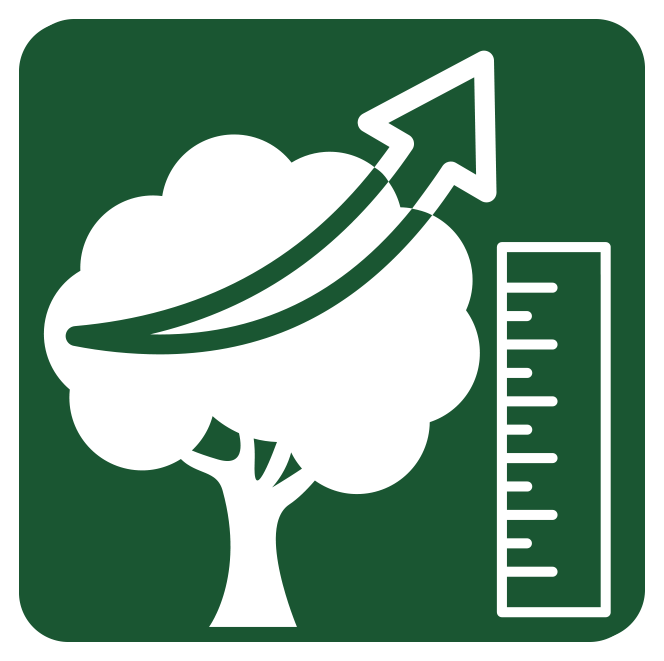 Growth Rate
Growth Rate
Rapid: 2 ft or greater per year
 Soil Type
Soil Type
Clay: Small sized particles. Long moisture retention and low nutrient availability.
Loam: Equal mix of clay, sand, and silt. Moderate moisture retention and high nutrient availability.
Sand: Large/coarse particles. Short moisture retention and low nutrient availability.
Silt: Medium sized particles. Moderate moisture retention and high nutrient availability.
Rocky: Large pieces of gravel and rock. Short moisture retention and low nutrient availability.
 Soil Moisture Tolerance
Soil Moisture Tolerance
Dry - Moist: Soil can be dry for periods of time and can retain little moisture for periods of time
Root - Fungal Association
Arbuscular mycorrhizae: Symbiotic relationship with fungi that exist on inside of plant root cells, facilitating nutrient uptake
Pest & Pathogen Risks
Low; Locust borer
 Urban Stress Tolerance
Urban Stress Tolerance
Medium: Tree can adapt to a few urban conditions and will generally grow well
Drought Tolerance
Tolerant: Tree will not become stressed during periods of drought
Coefficient of Conservatism
0
Native Status
OH-Native: Species is native to Ohio
NatureServe G-rank
G5
Plant Community Type
- Beech Mixed: Absent
- Oak Mixed: Occasional
- Alluvial: Occasional
- Red Maple Mixed: Occasional
- Ruderal: Occasional
- Urban Tree Cover: Common
Bloom Color
White
Form
Tree
 Lifespan
Lifespan
Short: Less than 100 years
Soil pH
Circumneutral (pH 6.8-7.2)
Wetland Indicator Status
FACU: Facultative Upland, usually occurs in non-wetlands, but may occur in wetlands
Soil Compaction Tolerance
Sensitive: Tree will become stressed from soil being compacted
Heat Tolerance
Tolerant: Tree will not become stressed for increased temperature due to urban heat island effects
Salt Tolerant
Tolerant: Tolerant to both aerial salt spray and salt present in soil
Native County Status
Cuyahoga
Geauga
Lake
Lorain
Medina
Portage
Summit
IUCN Red List Assessment
Least Concern
